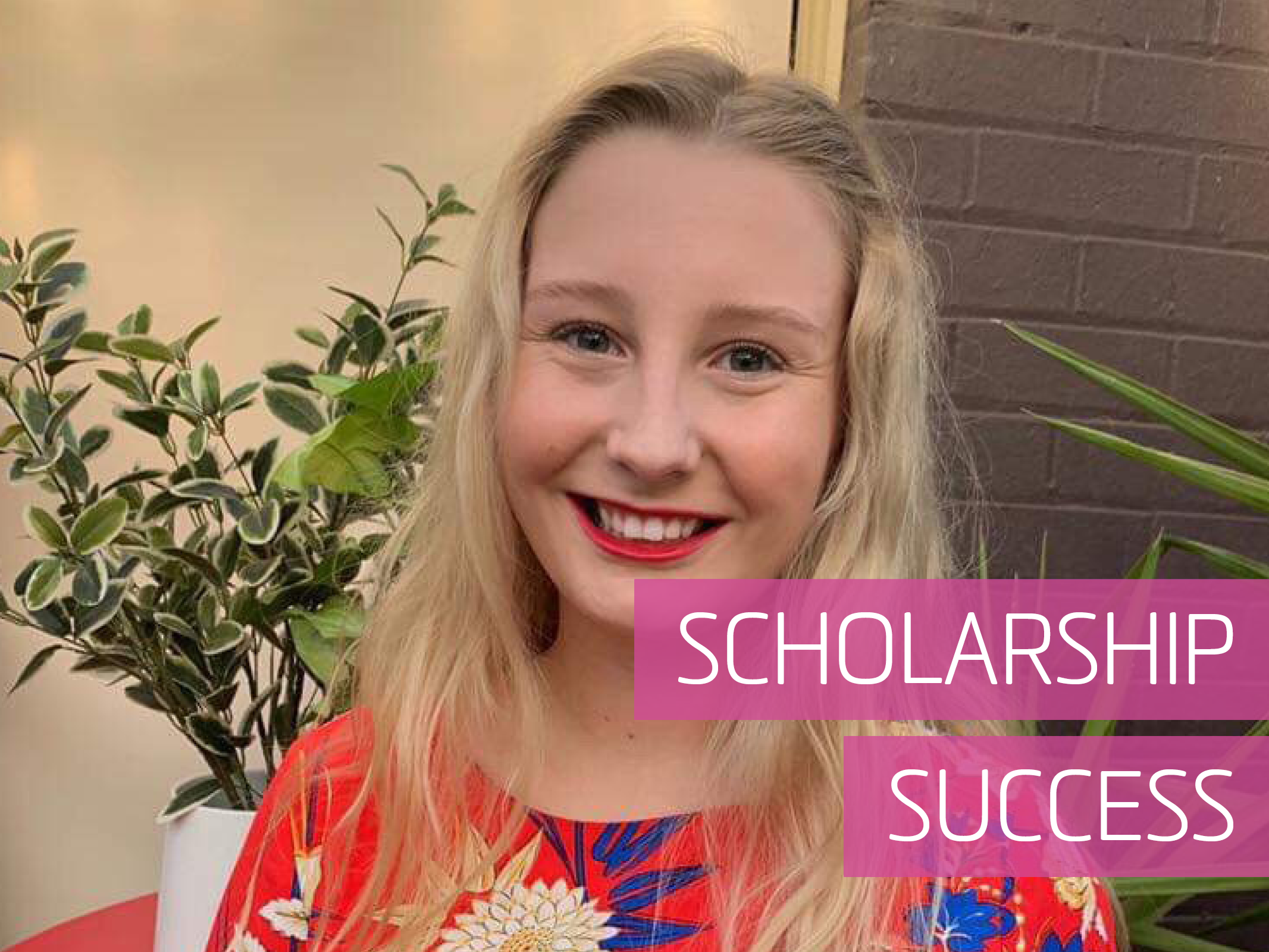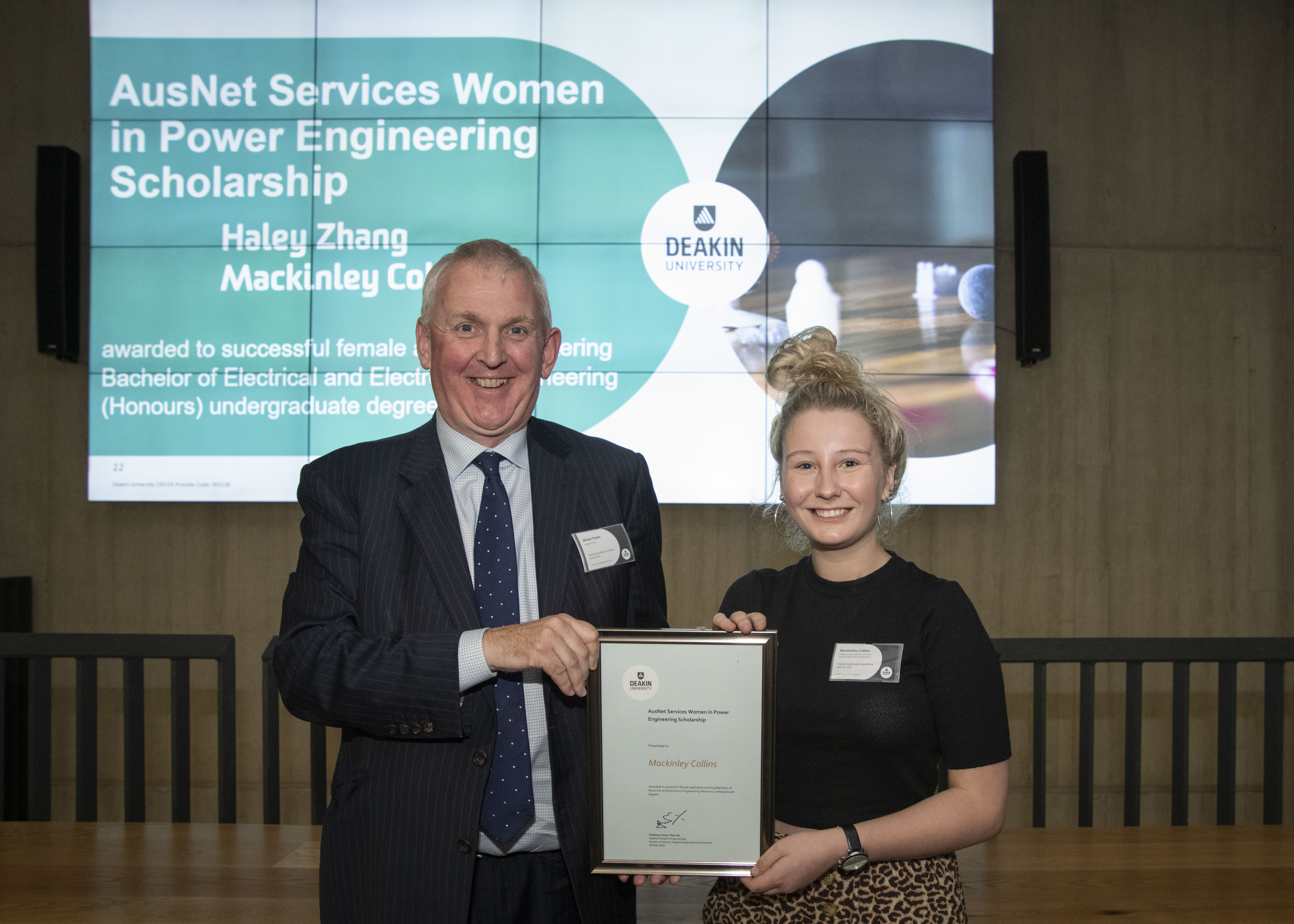

Engineering greater gender balance

The annual School of Engineering Student Awards, held this year on 30 May, are a wonderful opportunity to celebrate the achievements of our engineers of the future.
This year, the awards also revealed Deakin’s progress towards gender equity in this traditionally male-dominated field, with women taking home the majority of honours for the first time.
Professor Aman Oo, Head of the School of Engineering, said the School is committed to increasing the number of female engineering students at Deakin by offering support in as many ways as possible.
“In Australia, only 16 per cent of STEM graduates are women,” Professor Oo explained.
“Engineering is traditionally a heavily male-dominated industry and this is something we at Deakin are keen to change.”
The provision of scholarships for women is one of the School’s key programs aimed at boosting the number of women in its student ranks.
“The School is very fortunate to have the support of generous partners and donors like AusNet Services, Barwon Water, and Ford Australia,” Professor Oo said.
“These organisations share our vision for a greater gender balance in engineering; providing financial, motivational and career-boosting scholarship support for our high-achieving female students.
“It was my pleasure to present these scholarships, plus our achievement awards, to students at the Awards night.”
Another important initiative is the School’s Outreach Program, which received a significant boost with the appointment of a School Outreach Coordinator, Jess Sautner, in 2017.
One of Jess’ first priorities was engaging with girls in Victoria through initiatives like the Power of Engineering events and Girls in Physics breakfasts.
“We’ve had some very inspiring speakers along to our events, including Dr Amanda Caples, Victoria’s Lead Scientist, and Dr Collette Burke, the Victorian Chief Engineer,” Jess said.
“We also bring hundreds of students to CADET for hands-on activities and a glimpse at the exciting world that awaits if they choose to study Engineering at Deakin.
“More recently, we have broadened the age of students we reach, targeting students as early as Year Seven rather than in their VCE years, when their study and career paths may already be set.”
Other successful initiatives in 2019 included the launch of a Ladies in Engineering at Deakin (LEAD) group for female engineering students and a membership program specifically targeted at female students in the School of Engineering.
Future initiatives that aim to provide more gender equity in the School of Engineering include the introduction of new engineering courses that attract more interest from women and a mentoring program that encourages more women to pursue engineering studies and become ambassadors.
The mentoring program is of particular interest to Mackinley Collins, a first year Bachelor of Electrical and Electronics Engineering (Honours) student and one of two recipients of an AusNet Services Women in Engineering Scholarship in 2019.
“I want to work towards encouraging young women to pursue their interests in areas where they don’t see themselves represented,” Mackinley said.
“In 2018, I was one of two girls in my Physics and Specialist Maths classes at school and I often felt like an outsider, like I wasn’t represented in my class discussions.
“I hope that receiving the AusNet Services Women in Engineering Scholarship will help me to work harder in my community and in my career to achieve my goal of being able to help other young women.”

According to Professor Oo, while there is still work to do in improving gender equality, the School’s progress to date has been encouraging.
“Just four years ago, there were only three women on staff in the School,” Professor Oo said.
“I’m proud to say that today, that number has increased to 20.
“And only five years ago, just four percent of our students – around 30 – were women. Today, that number sits around the 12 per cent mark, with 250 women among our 2,000 engineering students.
“This places us on par with the national average at Australian universities – a great outcome for all involved.”
The School of Engineering would like to thank its industry partners and sponsors for their support of the 2019 Student Awards:
- AusNet Services
- Barwon Water
- Des Munday & Son
- Engineers Australia
- Ford Australia
- Godfrey Hirst Australia
- IMechE Frederick Barnes Waldon
- Incitec Pivot Ltd
- Institution of Civil Engineers
- Institution of Structural Engineers Australia
- IStructE
- SEW-Eurodrive
- The Steel Reinforcement Institute of Australia (SRIA)
- VIVA Energy Australia
- Worley Parsons
